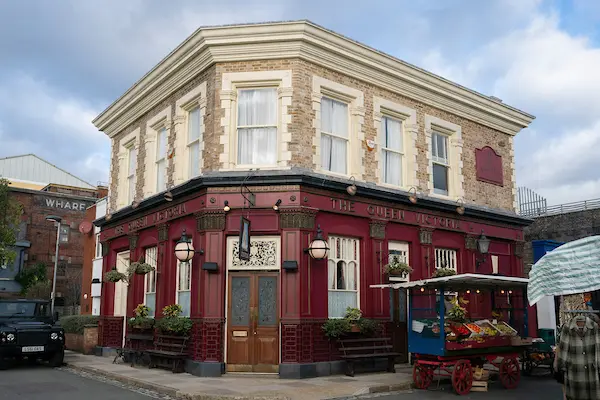Words by Jennifer Jasmine White.
Celebrated for its commitment to nurturing new behind-the-camera talent, EastEnders’ has received a BAFTA Special Award. The award recognises the sheer social impact of one of the most-watched genres of the small screen: the continuing drama, or the Great British soap.
Emerging from the same cultural moment as a ‘New Wave’ of British social realism, soap opera has outlived many other dramatic forms and yet still finds itself frequently overlooked. Connecting with the lives of millions of working people week after week, shaping public consensus, and offering audiences a rare chance to see their own lives reflected attentively and complexly, those individuals at the centre of the soap world know the value of what they do. Met with a UK media that often oversimplifies and caricatures their lives, working-class people have long known that value, too.
Much of what should be celebrated about the world of soaps extends far beyond the immediately visible. It is, for instance, one of the few forms that has given voice to the complexities of working-class women’s lives. And, by no coincidence, one of the only ones to prioritise those same women on the other side of the camera. Where this is celebrated, it is often simply as an origin story, but trailblazers such as Kay Mellor and Sally Wainwright ought not be taken as exceptions, but rather proof of the kinds of talent that abounds on sets such as these.





